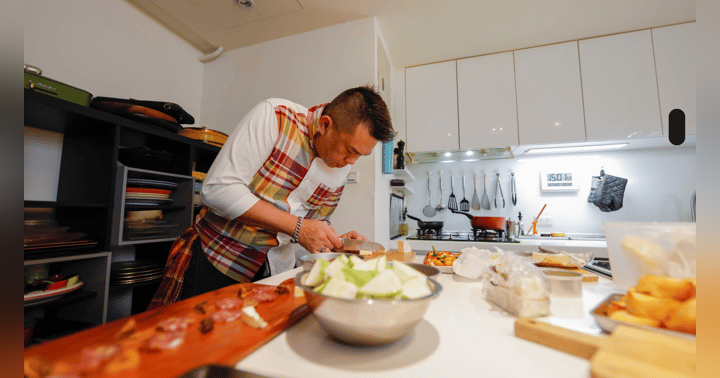Reflecting on the changes in Hospitality from the podcasts first ever episode in 2020 to now

In the early days of the pandemic, Talking Hospitality—then cheekily called "Timothy Put the Kettel On"—was born out of a need to stay connected, to share insights, and to support the hospitality industry in one of its darkest times. Recorded in the depths of lockdown, the very first episode captured the essence of an industry grappling with shutdowns, furloughs, and uncertainty. Back then, the podcast covered topics like the rapid pivot to delivery models, the immediate need for creative ways to use surplus food, and the all-too-familiar “Zoom fatigue.” So, what’s changed since then? And what parts of those early conversations still resonate?
What’s Changed?
-
Digital Evolution in Hospitality
The pandemic forced hospitality to dive headfirst into digital solutions, and this trend has only grown since. In 2020, contactless payment, online ordering, and virtual menus were innovative and, in some cases, temporary fixes. Today, they’re permanent fixtures, with digital bookings and ordering apps becoming the norm. According to the British Hospitality Association, 85% of UK restaurants now use digital ordering systems, a major leap from pre-pandemic levels. This shift allows businesses to streamline operations but has also added a new layer of operational tech to manage, which was unimaginable back during those first podcast episodes. -
Staffing Challenges and Industry-Wide Shortages
Staffing was a significant concern in the early podcast episodes, with hospitality professionals discussing furloughs and job insecurities. Fast forward to today, and staffing remains a critical challenge, though for different reasons. The combination of Brexit and pandemic-induced career changes has led to a shortage of skilled staff in the UK hospitality sector. Many businesses have turned to recruitment agencies or are increasing wages to attract talent, reflecting an entirely new dynamic from the uncertainty of 2020. -
Focus on Safety Regulations
In 2020, health and safety focused almost exclusively on Covid-19 measures. Today, the emphasis has expanded, with issues like customer safety in nightlife and alcohol spiking taking center stage. New regulations, including Martyn’s Law (focused on venue security) and guidelines on alcohol safety, are reshaping training protocols and safety priorities for hospitality businesses. Read more about these evolving regulatory standards on the UK Government’s website. -
Community Resilience and Sustainability
The original episodes of Talking Hospitality spoke about how furloughed hospitality workers were volunteering to help distribute food to those in need. The spirit of giving back has continued but evolved; now, sustainability has become an enduring priority. In 2023, initiatives like WRAP’s Guardians of Grub programme help restaurants actively reduce food waste and embrace more sustainable practices. Guardians of Grub offers resources and guidance for businesses to cut waste and reduce costs while positively impacting the environment.
What Hasn’t Changed?
-
Passion and Resilience of Hospitality Professionals
The spirit of adaptability and resilience discussed in the very first episodes still defines the industry. From pandemic pivots to today’s tech and safety challenges, hospitality professionals continue to be resourceful, driven, and dedicated to service. This foundational aspect of the industry remains, keeping the heart of hospitality intact despite evolving challenges. -
Customer-Centric Focus
Despite the changes in operations and technology, the core focus on delivering memorable customer experiences has remained steadfast. Many hospitality leaders see customer service as the industry’s backbone, and while how we serve guests may have evolved, the drive to exceed customer expectations remains just as strong as it was in 2020. See UKHospitality’s 2024 Customer Service Strategy for further details. -
Adaptation to Changing Norms
The industry’s ability to quickly adapt—whether to the pandemic, digital innovations, or staffing needs—continues to be a key trait. This adaptability, highlighted in the first episodes, remains a hallmark of the sector, with businesses continuously evolving to meet new demands and challenges.
For Better or Worse?
The pandemic undoubtedly accelerated change. While some changes, like the widespread use of technology, have driven efficiency, they’ve also introduced new challenges. Staffing remains a hurdle, as does the constant adaptation to new safety and regulatory requirements. However, many of these shifts have also empowered the industry to be more resilient, sustainable, and forward-looking.
So, as we look back on those early days of Talking Hospitality, it’s clear that while the way we do things has changed, the “why”—our purpose—remains deeply rooted. As we continue to evolve, the real question is: what do you think? Has the industry changed for the better, or are there things you miss from the “old normal”? Share your thoughts below and join the conversation.




